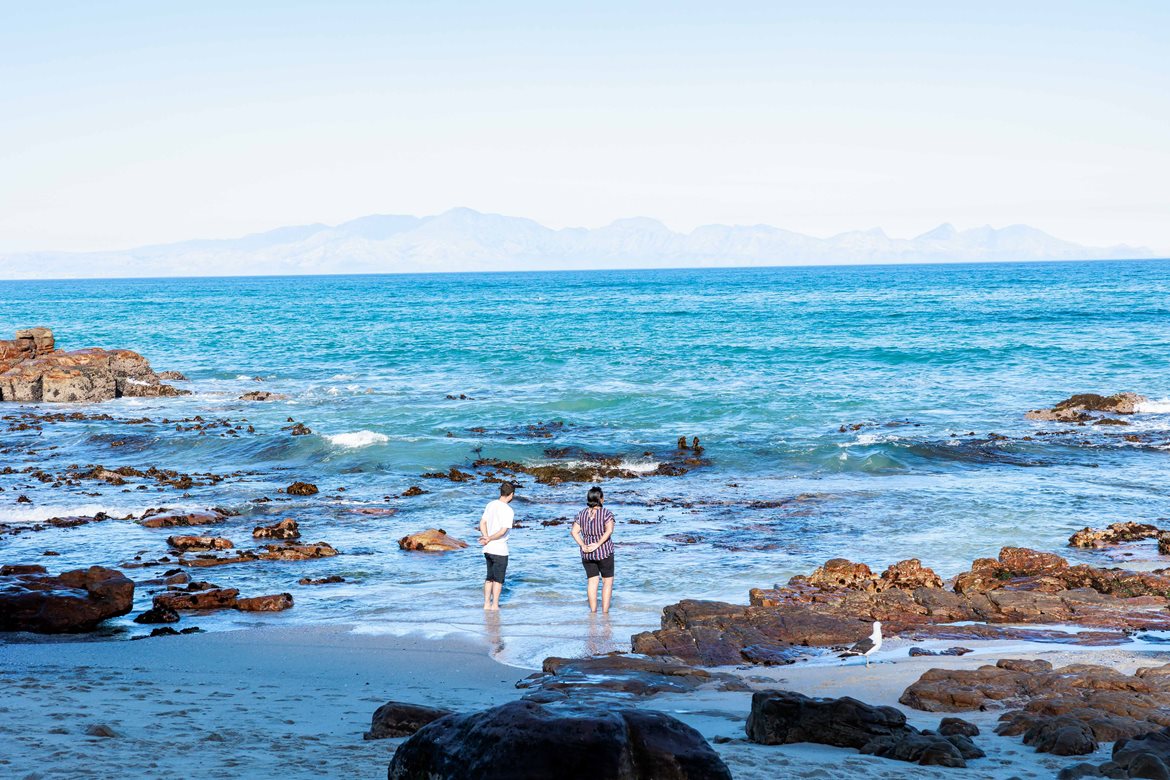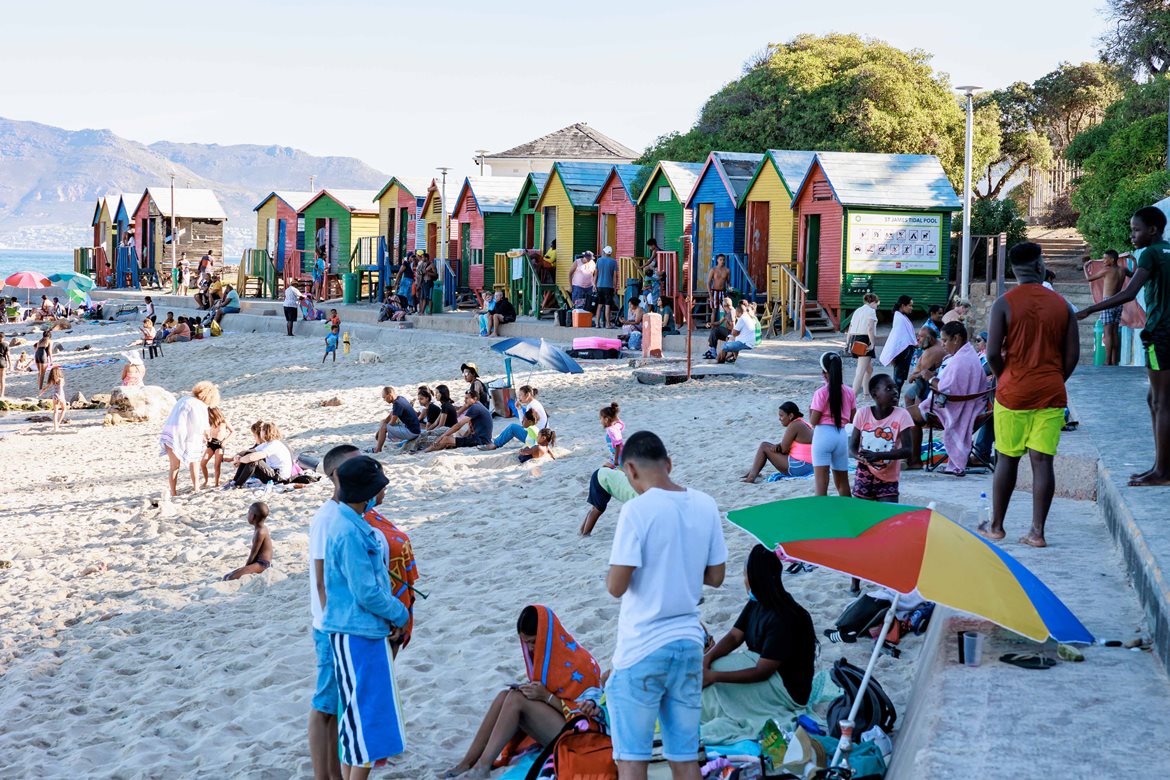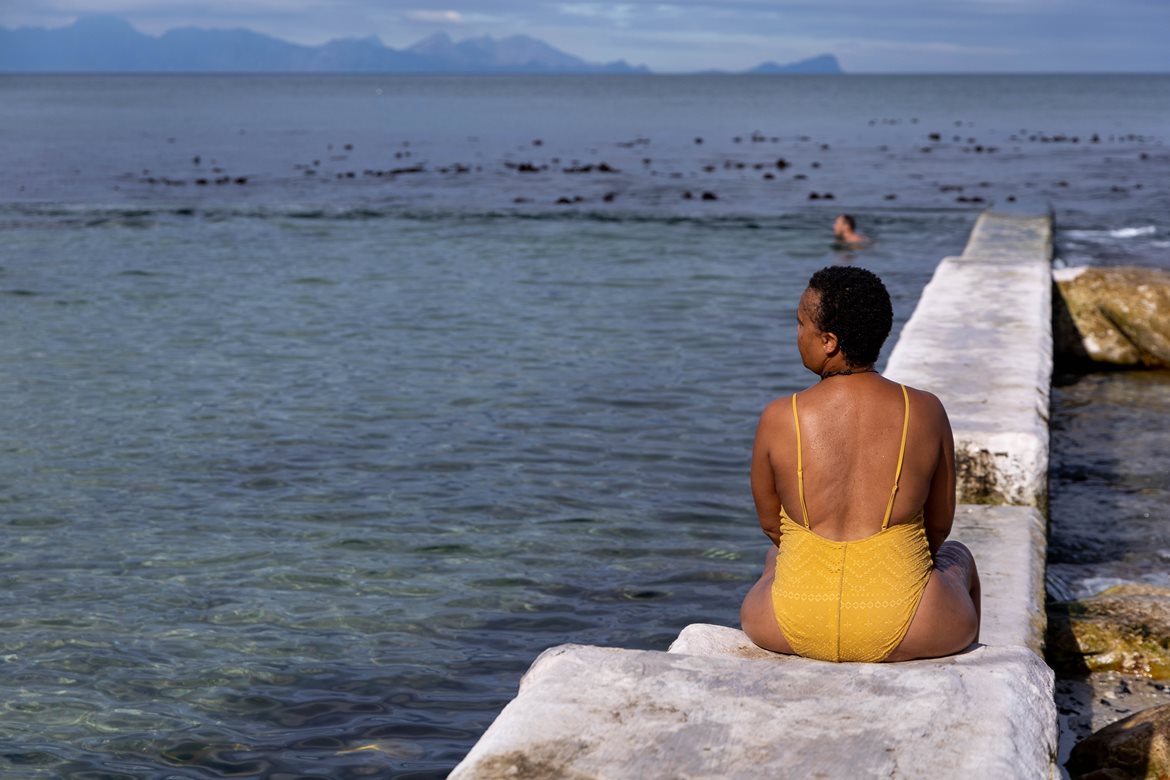The common perspective on sea water revolves around oceanography, science, and engineering, leading to its objectification as something distant and non-human (Deloughrey, 2016). Consequently, this has led to the division of the connection Africans have with the sea and/or the natural environment (Sibeko, 2020). In Africa, being disconnected from nature can lead to illness, thus, healing is closely linked to an individual’s relationship with nature and the sea. This therefore highlights that well-being is not linear, it is sensory, complex and intricate. The use of the ocean plays a very important role in people’s healing from diet factors to psychosocial well-being.

Through employing an exploratory and qualitative methodology along the coastline in St James, in the Western Cape, South Africa, data was collected to comprehend the first-hand encounters of individuals utilising the sea for the healing and overall well-being. One female participant from the area described that she felt small in comparison to the sea. She continued,
“it's the feeling of being in this grand, like vastness, like this feeling of being huge and very small at the same time. And, and that like beautiful silence. That's just very, very calming. And it's just, I find often when you’re feeling rattled or whatever, like annoyed or some or something negative or whatever and you dive into the ocean. I mean, I think that's what, like baptism is in all of that. It's, that's the sort of like washing it off and the ocean. Yeah. It's definitely like something like, that's the feeling I get when you jump into the ocean and you play in the waves.”
Another participant shared, ‘
I choose to come here [to the sea] because I get a sense of tranquillity here, especially during winter. My son taught me the importance of reducing sensory overload and seeking blue and green spaces. There is a physicality in being in the ocean. The more time I spent alone with him at the sea, the more I realised that it’s time for me to get wet as well!”

When considering physiological well-being, we consider not just the absence of illness but rather holistically consider lifestyles, cultural behaviours and choices in creating a balanced state of the physical body (internally through nutrition and the external body), mentality and gees (Afrikaans for spirit). To better understand the embodied, emplaced and temporal experience of sea and well-being, and how the participants can be transformed as it caused changes in their minds, bodies and identities, we argue, that the ocean can play an important role in the physiological well-being with benefits that reach far beyond a blue economy and reflect cultural metrics that need to be considered in ocean accounting.

References:
DeLoughrey, E. (2016). Moments in Passing: Maritime Futures of the Anthropocene.
Olademo, O., 2012. Healing and women healers in Yoruba religion and African Christianity. Ilorin journal of religious studies, 2(1), pp.53-64.
Sibeko, O., 2020. Bottled seawater: A sea inland. Unpublished Masters Thesis, University of the Witwatersrand.